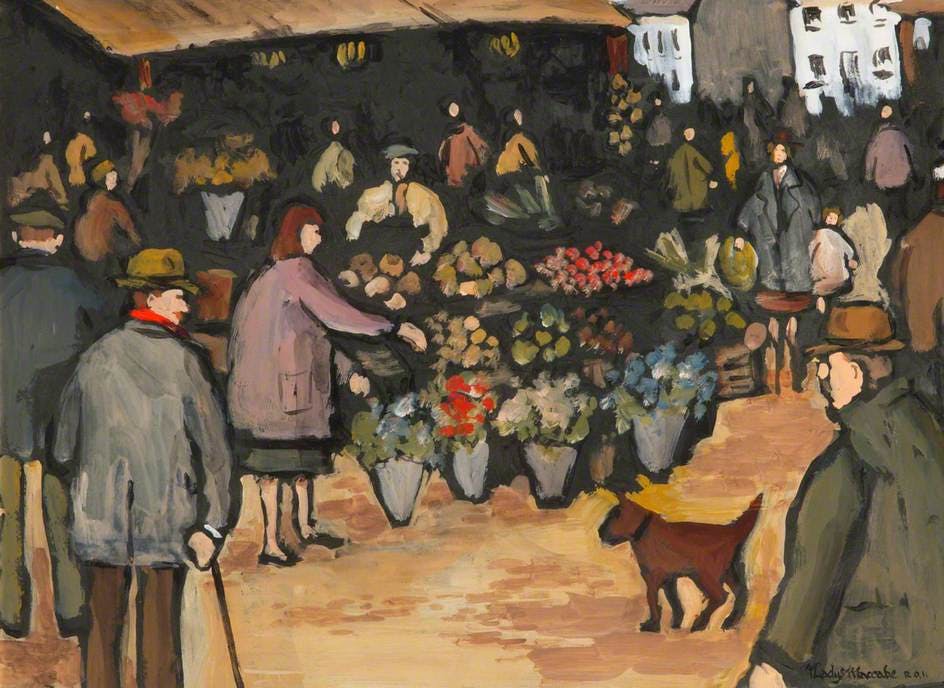Gladys MacCabe (1918-2018)
Flower Seller
Oil on board
28cm x 38cm
Collection of the Northern Ireland Civil Service
Gladys MacCabe was a 20th century Irish artist, known best for her depictions of gatherings of people. She was born on the 5th June 1918 in Randalstown into an artistic family, her mother was a linen designer, and her father was an artist who specialised in calligraphy. As a child she enjoyed drawing and had one of her works published in the Royal Drawing Society magazine at the age of just 16. She went to Brookvale Collegiate School and then to Belfast College of Art where she studied sculpture and commercial art, graduating in 1938. In 1941 she married fellow artist, Max MacCabe. The MacCabes were both members of the Contemporary Ulster Group, a collective of artists that included George Campbell, Gerard Dillon and Daniel O’Neill. MacCabe is notable not only for her artist talent but for the work that she undertook to raise the profile of the art scene in Northern Ireland. In 1957, MacCabe established the Ulster Society of Women Artists with the help of her friend Olive Henry. Her aim was to promote the development of quality art by female artists throughout Ulster. The society started with just ten founding members, today it has well over a hundred.
Much of MacCabe’s art depicts gatherings of people at society events such as the races, dances and drawing room receptions and at everyday places, like the beach, restaurants and, as in this case, markets. In the 1960s, MacCabe was also a fashion and arts correspondent, she appeared on television and wrote columns for newspapers and magazines. Her paintings of fashion plates have a notably refined individual style. She is also known for her paintings of still lifes, particularly flowers, and abstract work. During the Troubles she painted a number of scenes that she witnessed in Northern Ireland, some of which are now in the collection of the Imperial War Museum. Her work is held in many collections including the Royal Academy, the Arts Council of Northern Ireland, the Ulster Museum and the Northern Ireland Civil Service, where this work is on loan from. MacCabe died in 2018, just a few months short of her hundredth birthday.
